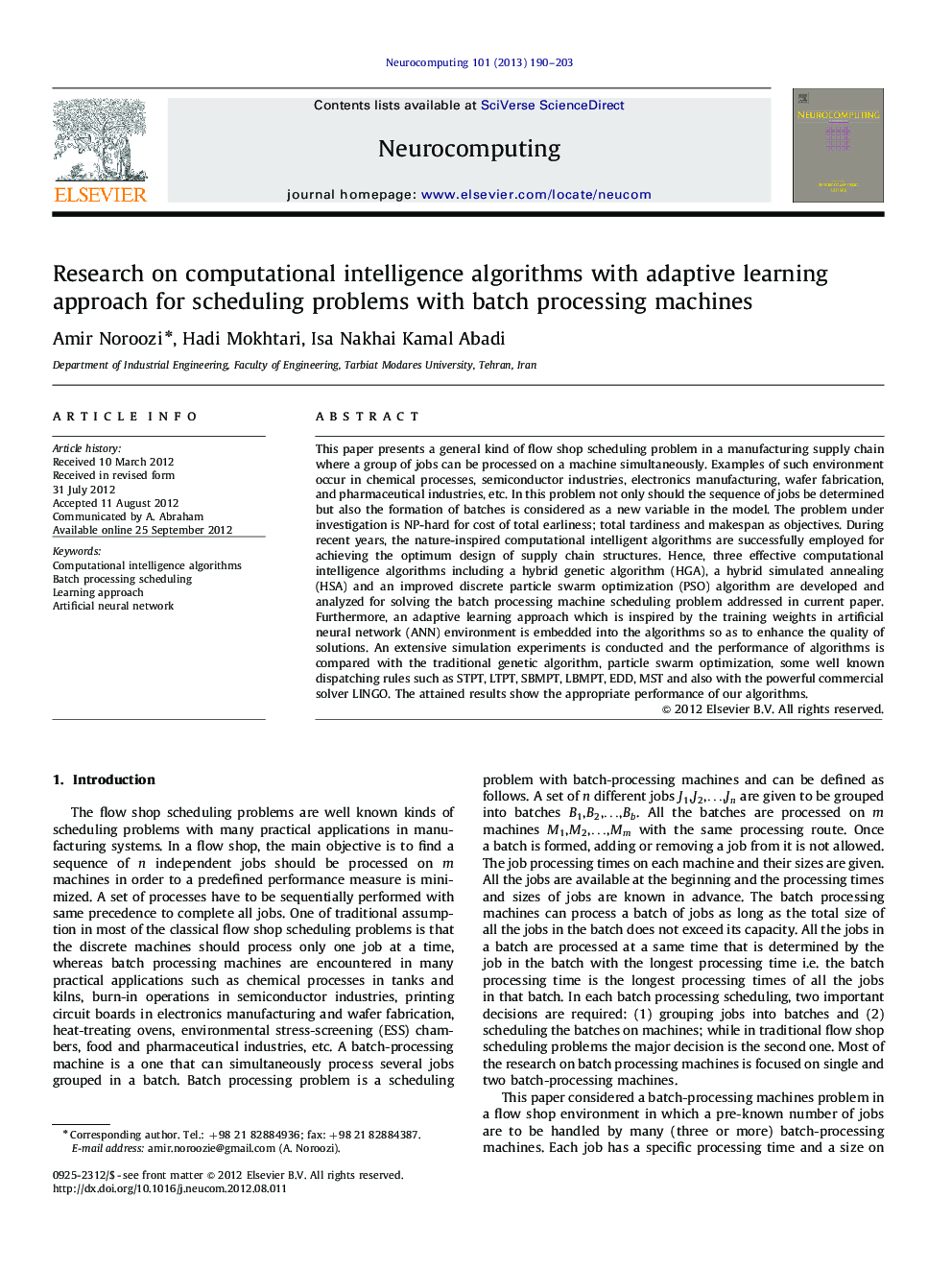| Article ID | Journal | Published Year | Pages | File Type |
|---|---|---|---|---|
| 407594 | Neurocomputing | 2013 | 14 Pages |
This paper presents a general kind of flow shop scheduling problem in a manufacturing supply chain where a group of jobs can be processed on a machine simultaneously. Examples of such environment occur in chemical processes, semiconductor industries, electronics manufacturing, wafer fabrication, and pharmaceutical industries, etc. In this problem not only should the sequence of jobs be determined but also the formation of batches is considered as a new variable in the model. The problem under investigation is NP-hard for cost of total earliness; total tardiness and makespan as objectives. During recent years, the nature-inspired computational intelligent algorithms are successfully employed for achieving the optimum design of supply chain structures. Hence, three effective computational intelligence algorithms including a hybrid genetic algorithm (HGA), a hybrid simulated annealing (HSA) and an improved discrete particle swarm optimization (PSO) algorithm are developed and analyzed for solving the batch processing machine scheduling problem addressed in current paper. Furthermore, an adaptive learning approach which is inspired by the training weights in artificial neural network (ANN) environment is embedded into the algorithms so as to enhance the quality of solutions. An extensive simulation experiments is conducted and the performance of algorithms is compared with the traditional genetic algorithm, particle swarm optimization, some well known dispatching rules such as STPT, LTPT, SBMPT, LBMPT, EDD, MST and also with the powerful commercial solver LINGO. The attained results show the appropriate performance of our algorithms.
► We present a flow shop scheduling problem with batch processing machines. ► Three kinds of computational intelligence algorithms are devised for solving the problem. ► An adaptive learning approach which is inspired by the training weights in artificial neural network is considered. ► The experimental results show the appropriate performance of our algorithms as opposed to the previous related methods.
